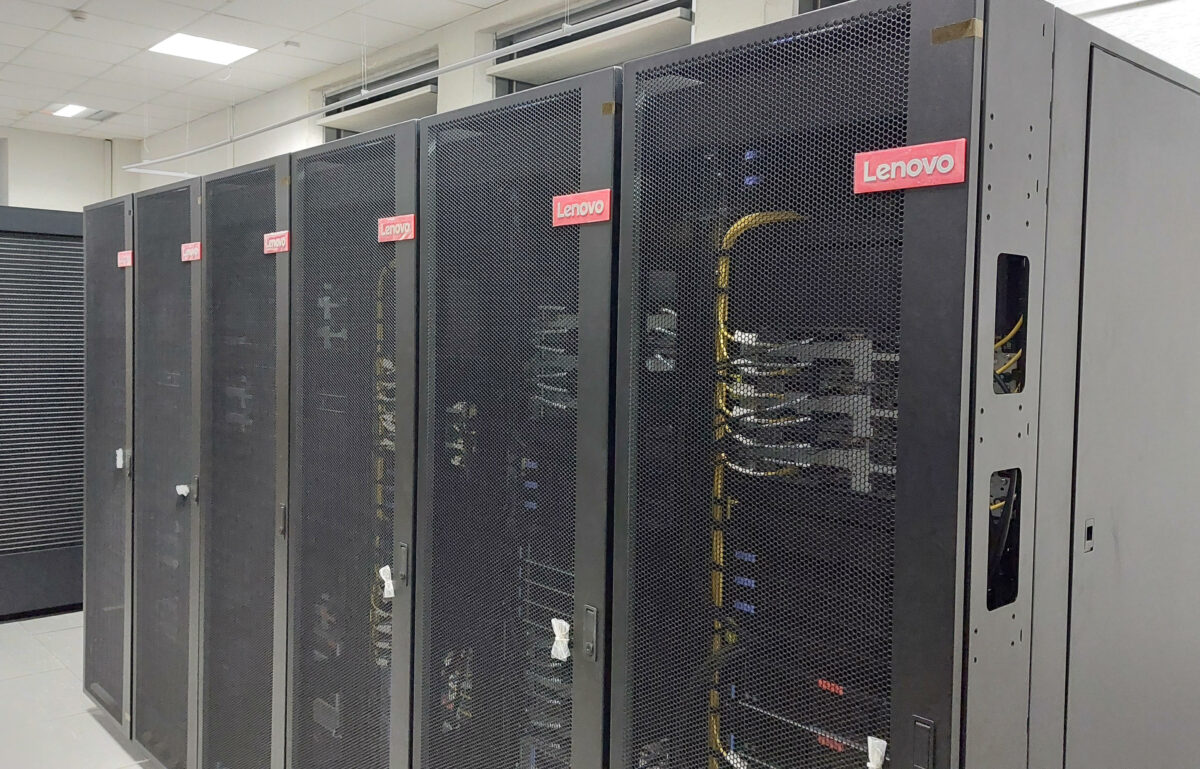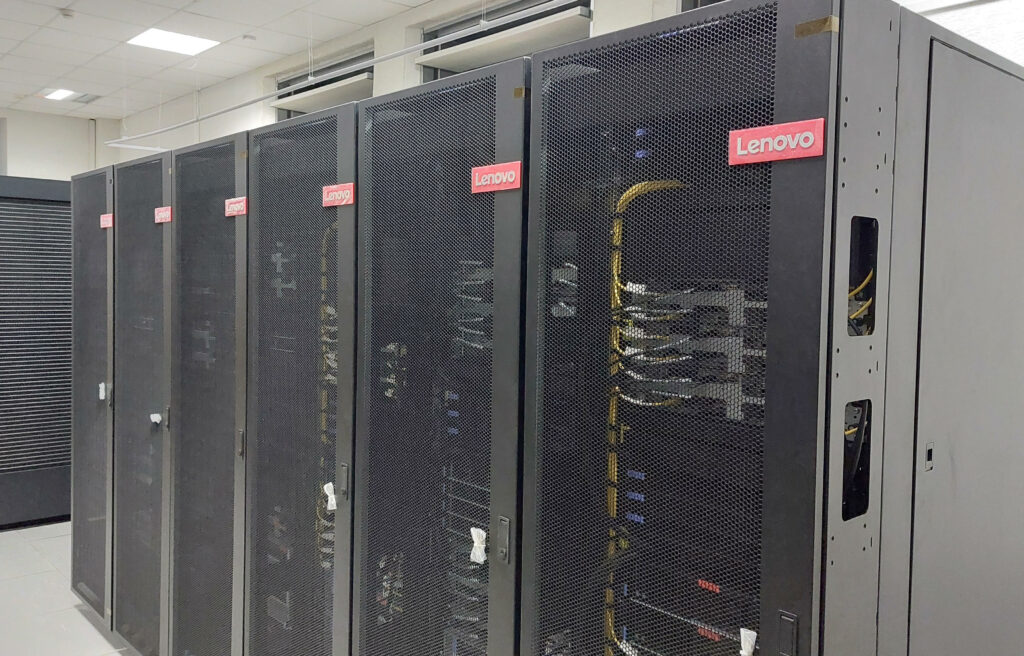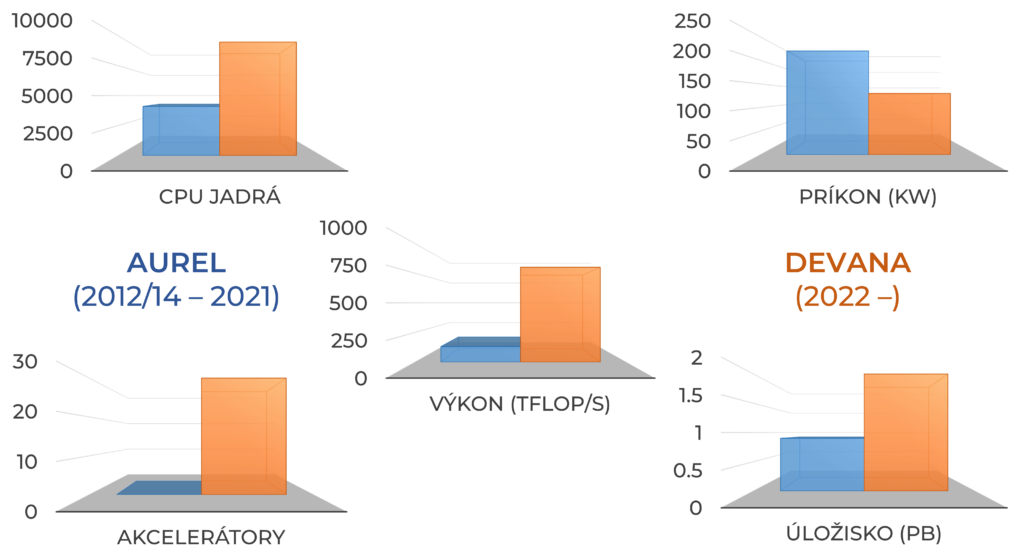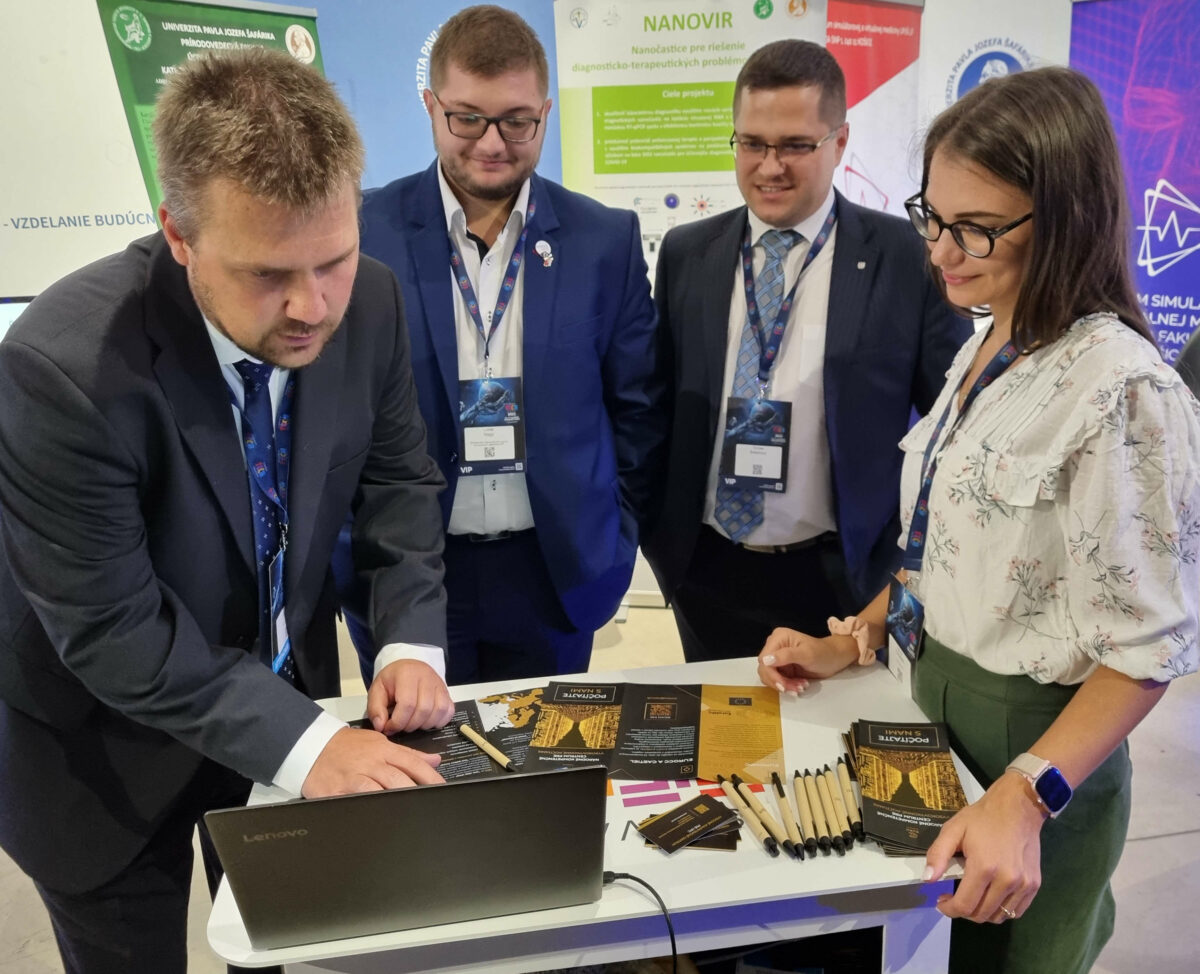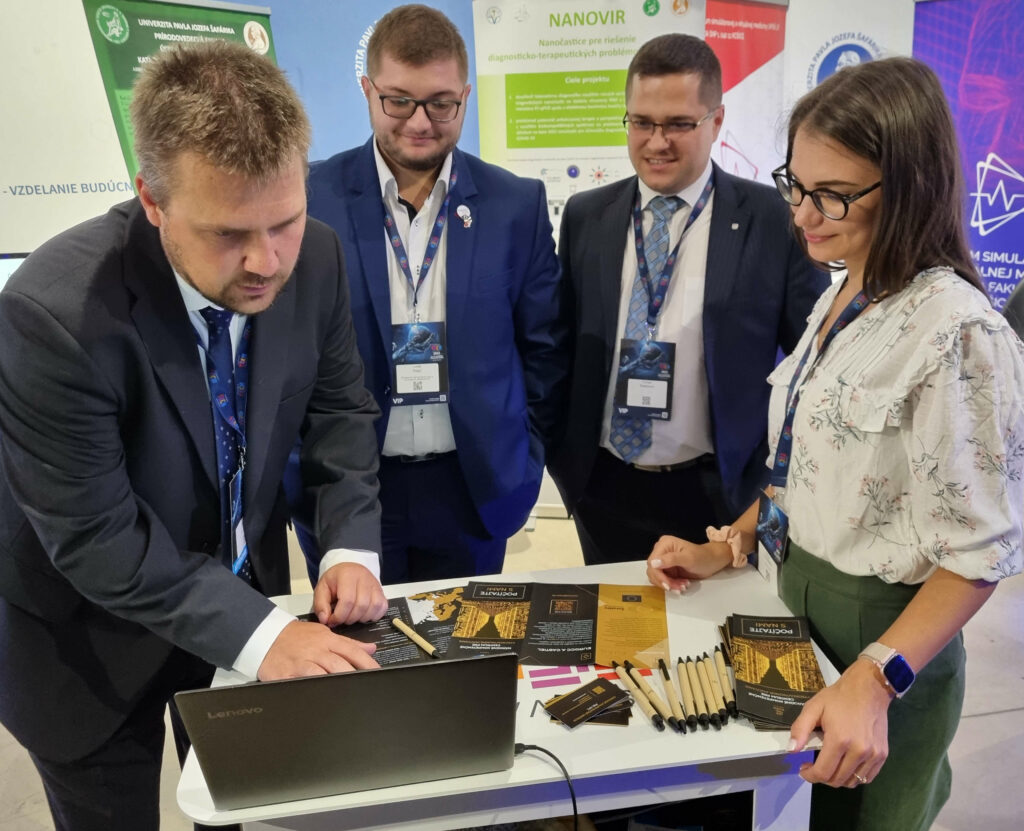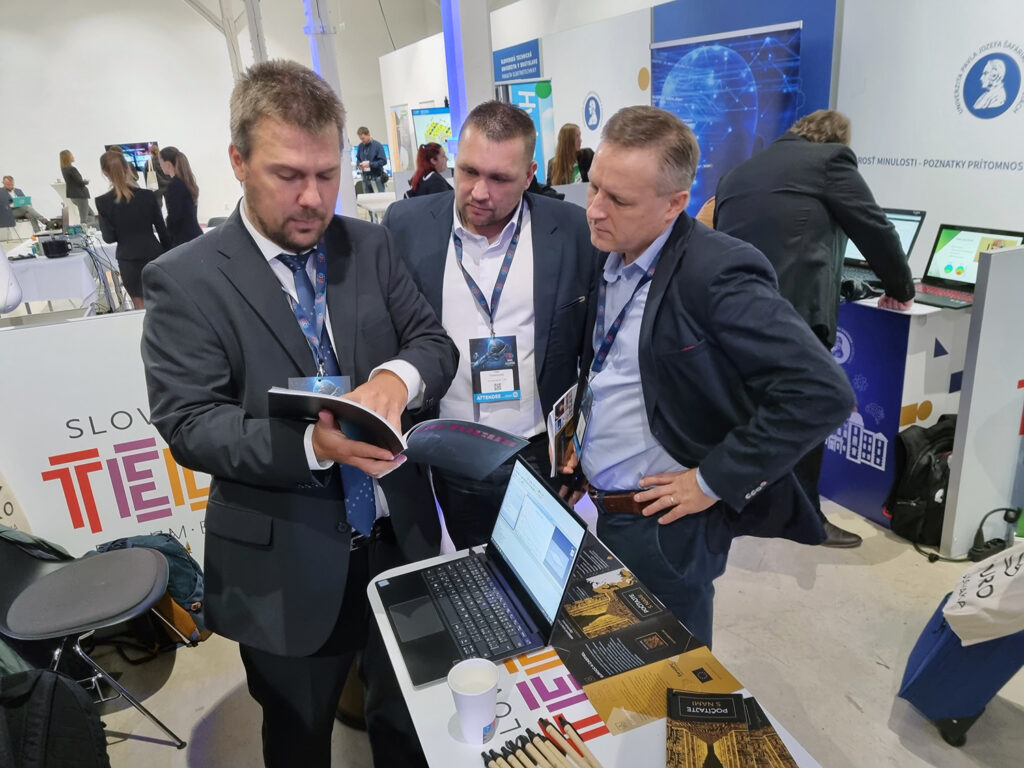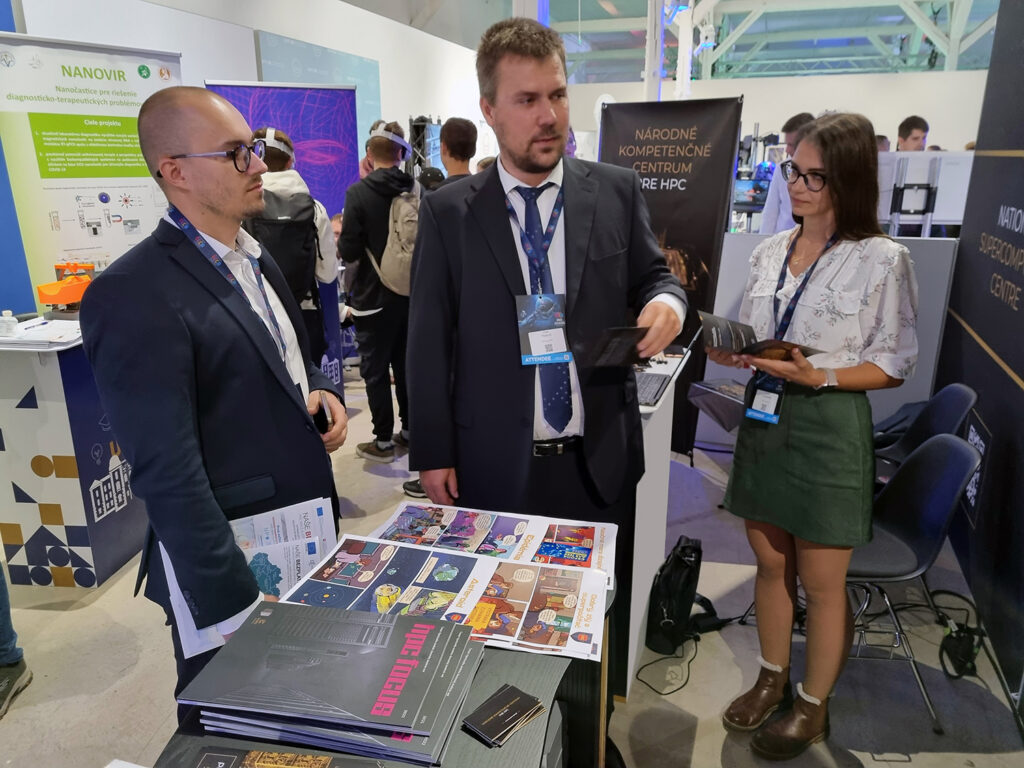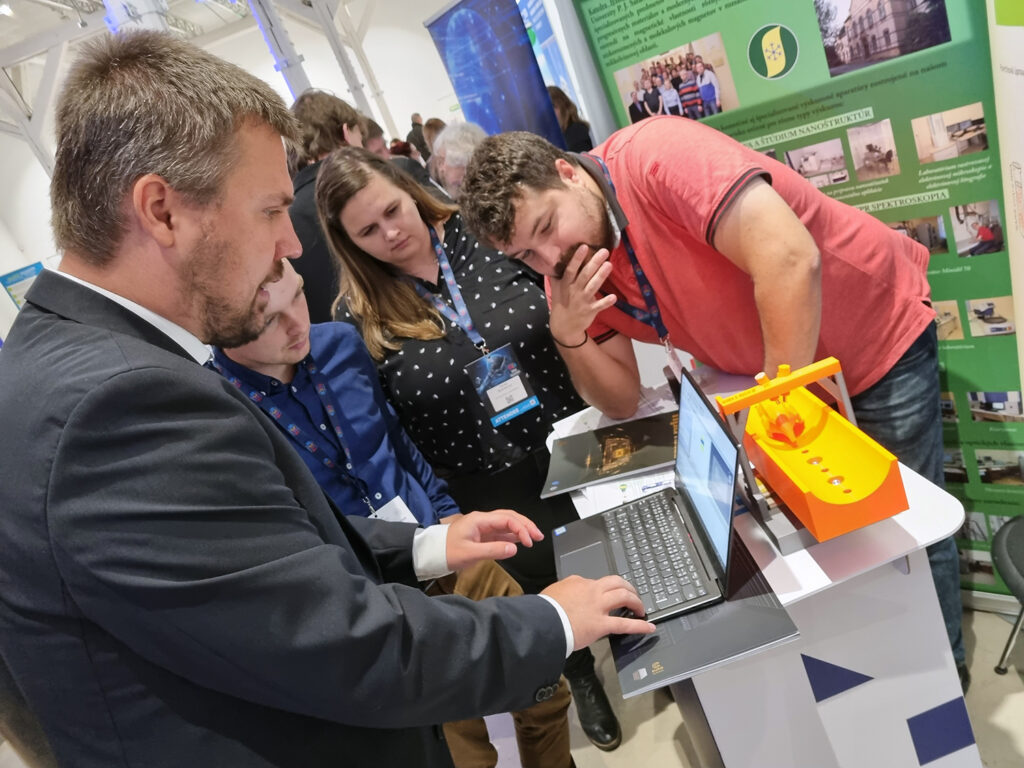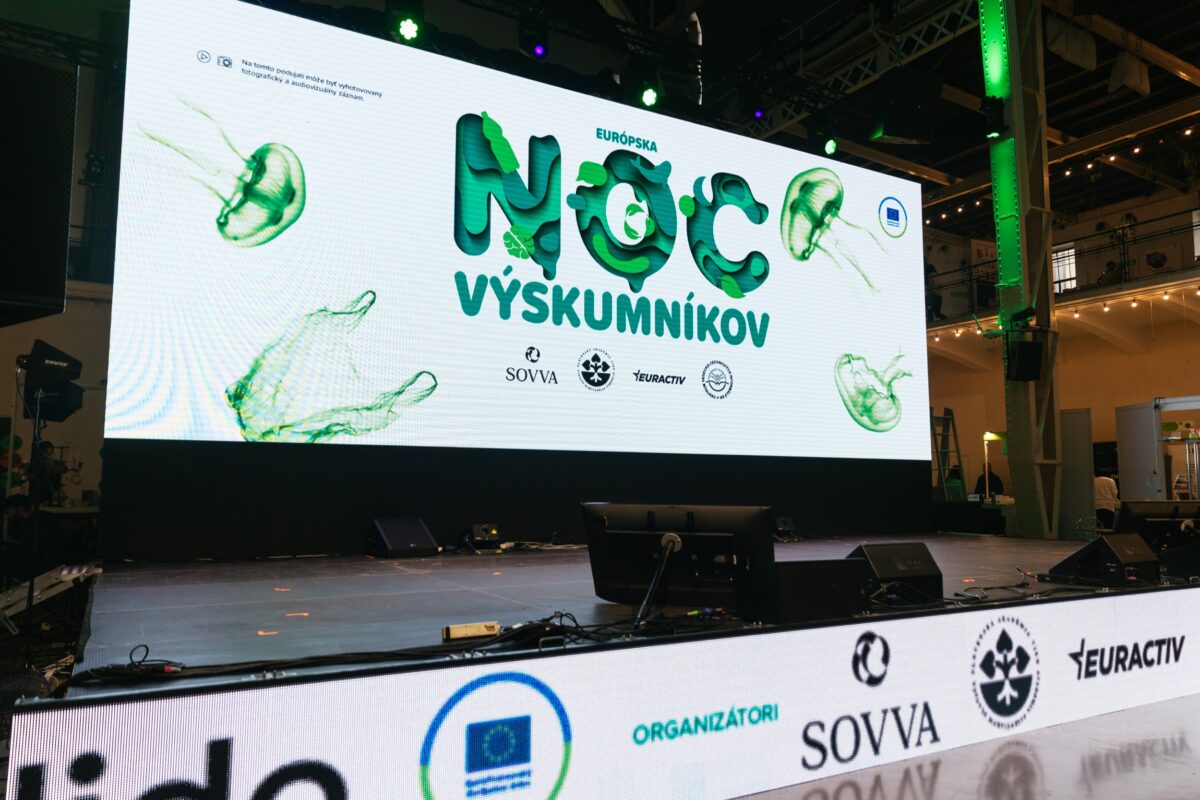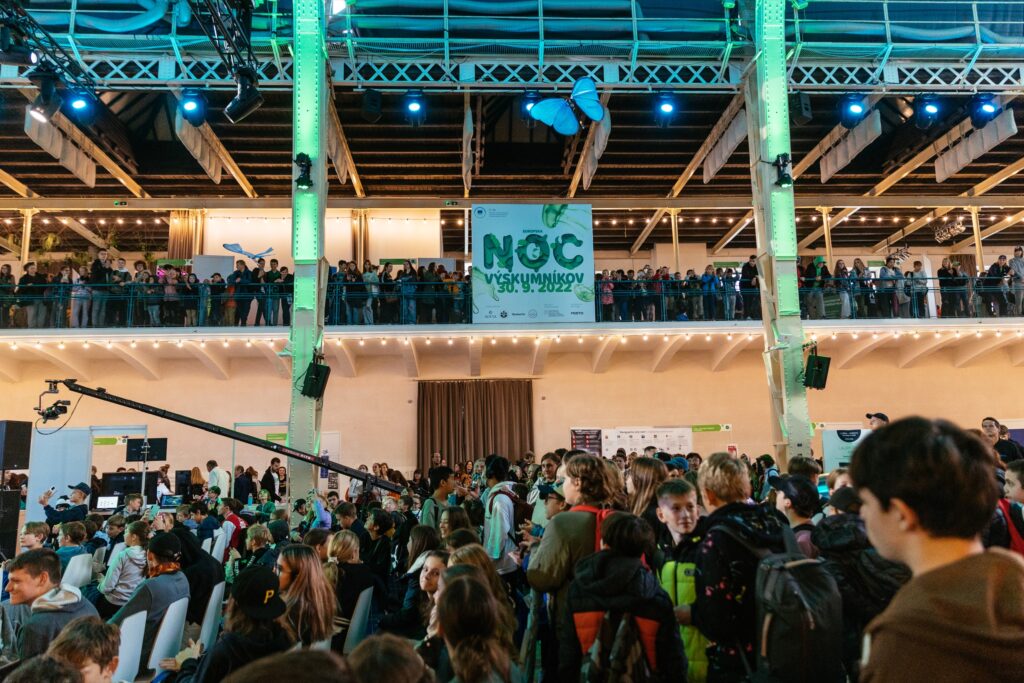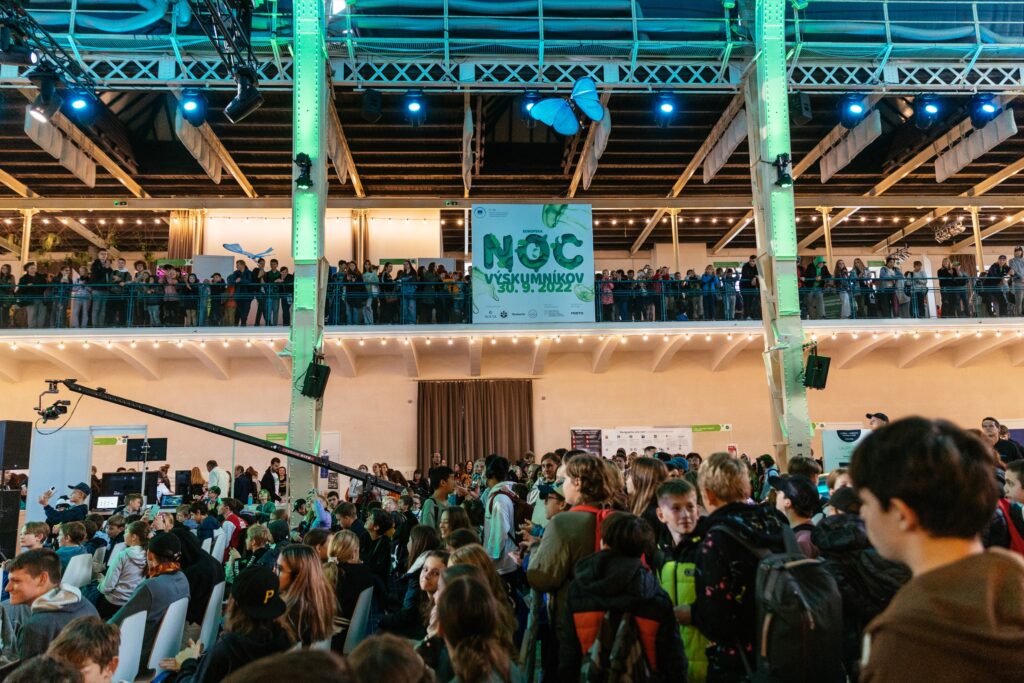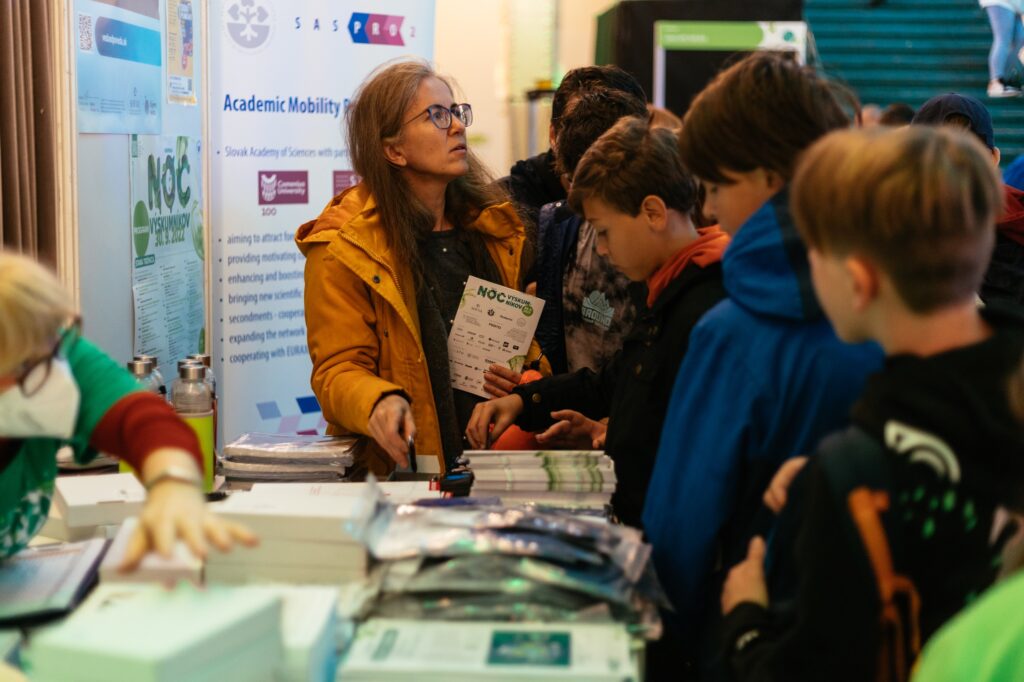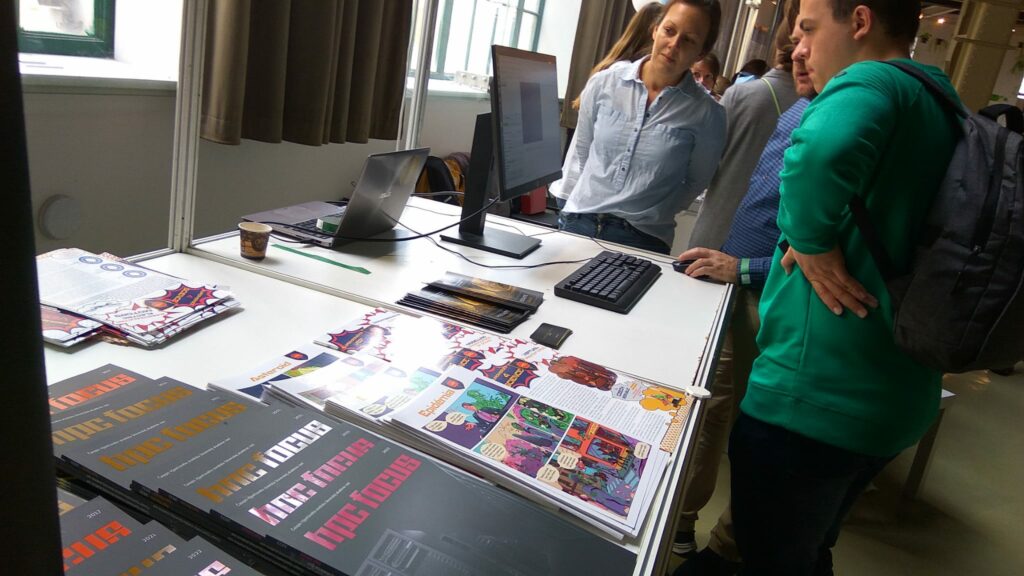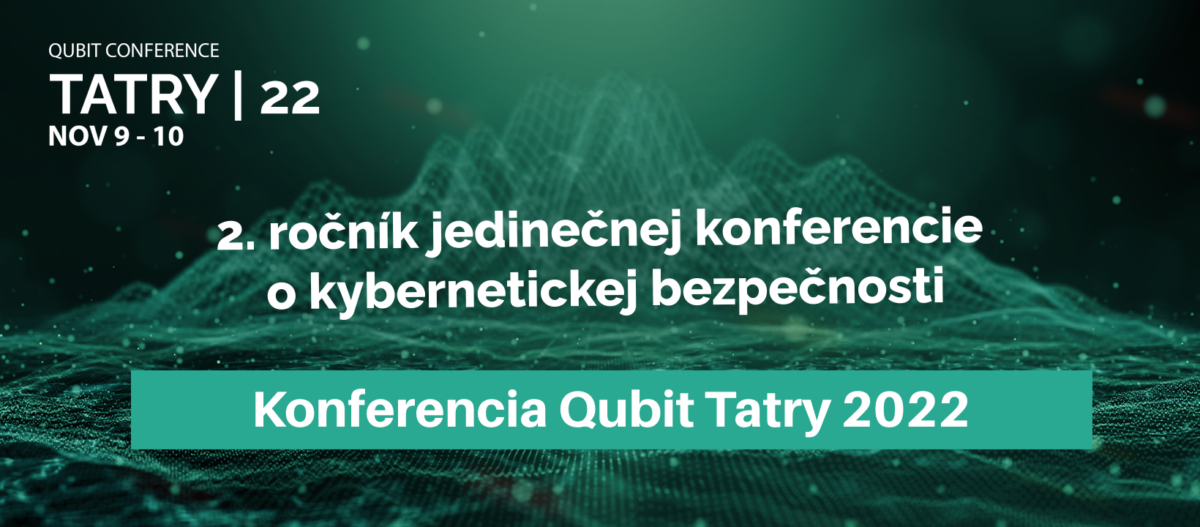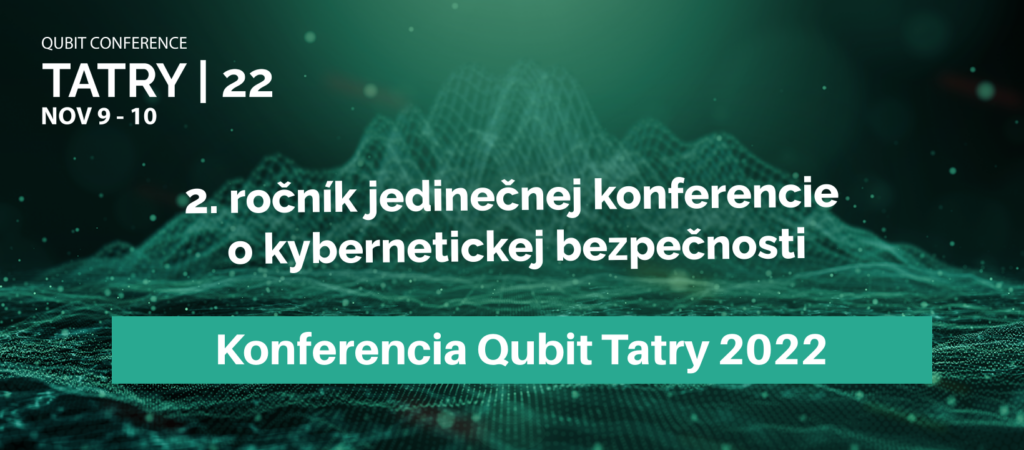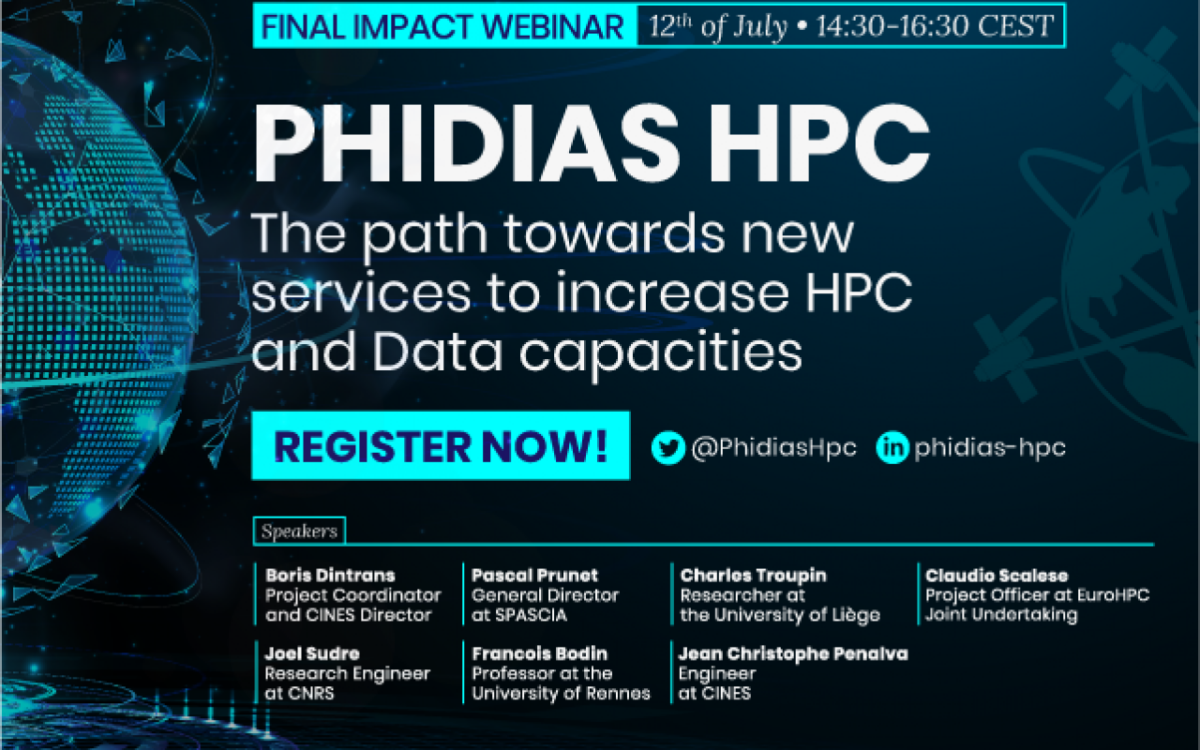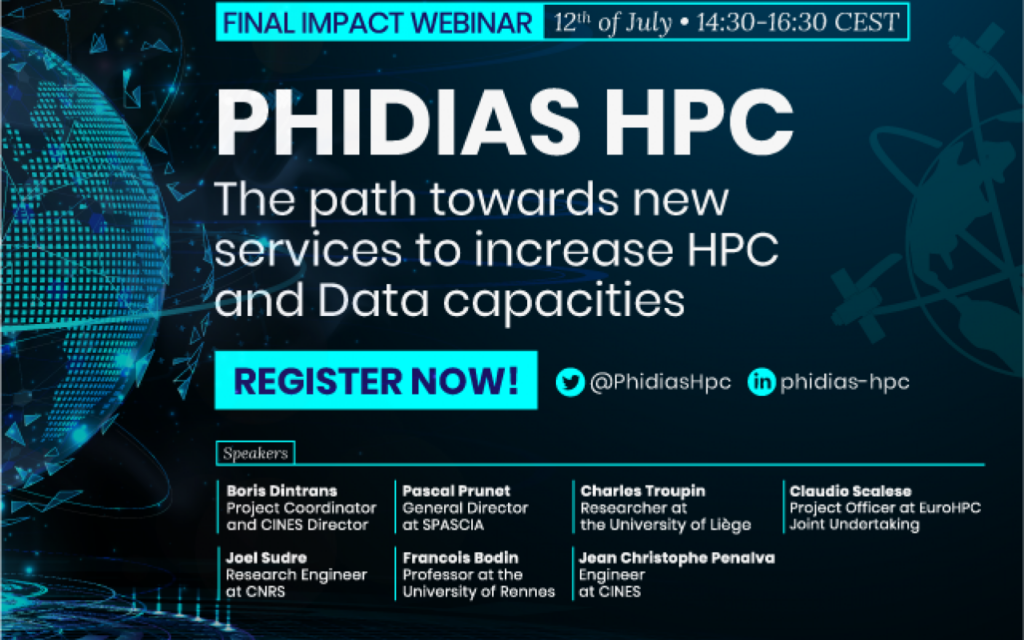Postupnými krokmi k spusteniu Devany
Po úspešnom navezení nového superpočítača Devana bude spusteniu a sprístupneniu pre používateľov predchádzať ešte niekoľko krokov, ktoré sa budú realizovať počas najbližších týždňov. Predovšetkým je nevyhnutné dokončenie a servis pomocnej infraštruktúry, ako sú elektrické rozvody a chladiaci systém.
Nasledovať bude inštalácia linuxového operačného systému a nástrojov pre manažment systému, manažment dát a súborového systému, ako aj mnohým požívateľom známy nástroj na manažment úloh Slurm. Napokon sa nainštaluje ekosystém pre aplikácie a vývoj softvéru, teda bežné matematické knižnice a kompilátory. Pred samotným prebratím Devany od dodávateľa prebehne prvé testovanie v réžii Výpočtového strediska SAV. Testy budú zahŕňať aj tzv. Linpack, čo je súbor štandardizovaných numerických úloh, ktorého výsledkom je definícia výkonu v jednotkách Flop/s, teda počet aritmetických operácií, ktoré superpočítač vykoná za sekundu. Najvýkonnejší počítač v Európe – LUMI – má výkon 309 PFlop/s, čo je 309×1015 operácií. Teoretický predpokladaný výkon Devany je okolo 800 TFlop/s, teda 800×1012 operácií za sekundu. Testovať sa bude aj rýchlosť čítania a zápisu dát z dátových úložísk. Napokon sa vykonajú záťažové testy, kedy sa na všetkých výpočtových uzloch spustia aplikácie vyžadujúce plný výkon procesorov a plnú operačnú pamäť. Test bude prebiehať približne 48 hodín a preverí sa ním stabilita systému a kapacita chladenia.
Po ukončení a vyhodnotení testov, ktoré predpokladáme začiatkom decembra, budeme môcť sprístupniť Devanu pre používateľov. Pri tejto príležitosti pripravujeme aj nový portál, ktorý bude slúžiť na podávanie, hodnotenie a manažment projektov a používateľov.
Text: Lucia Demovičová
Pictures: Pavol Novák
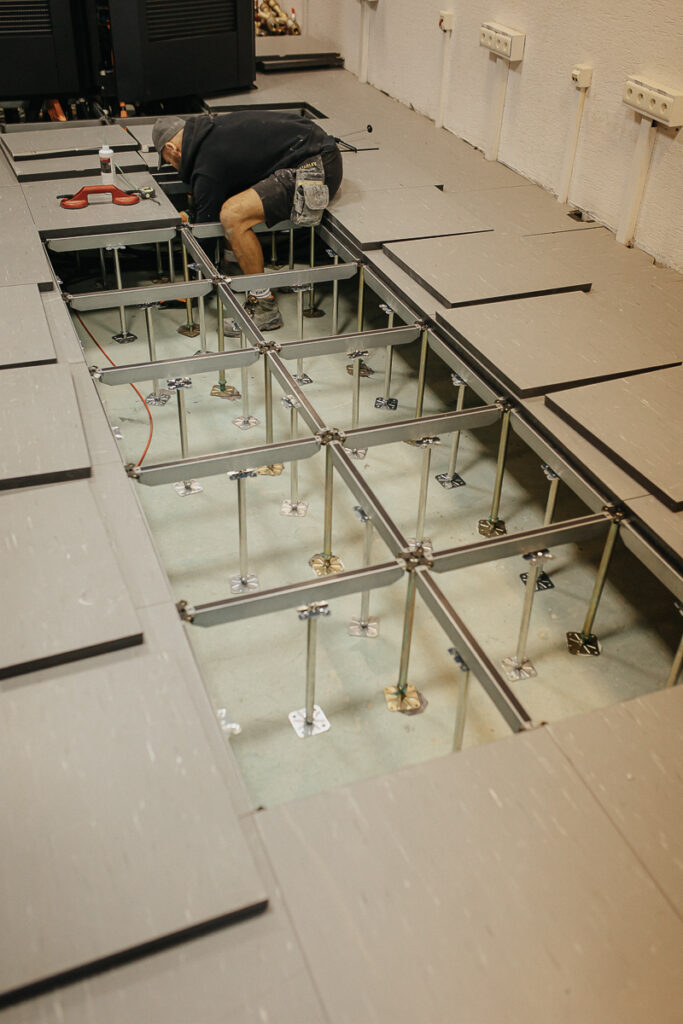
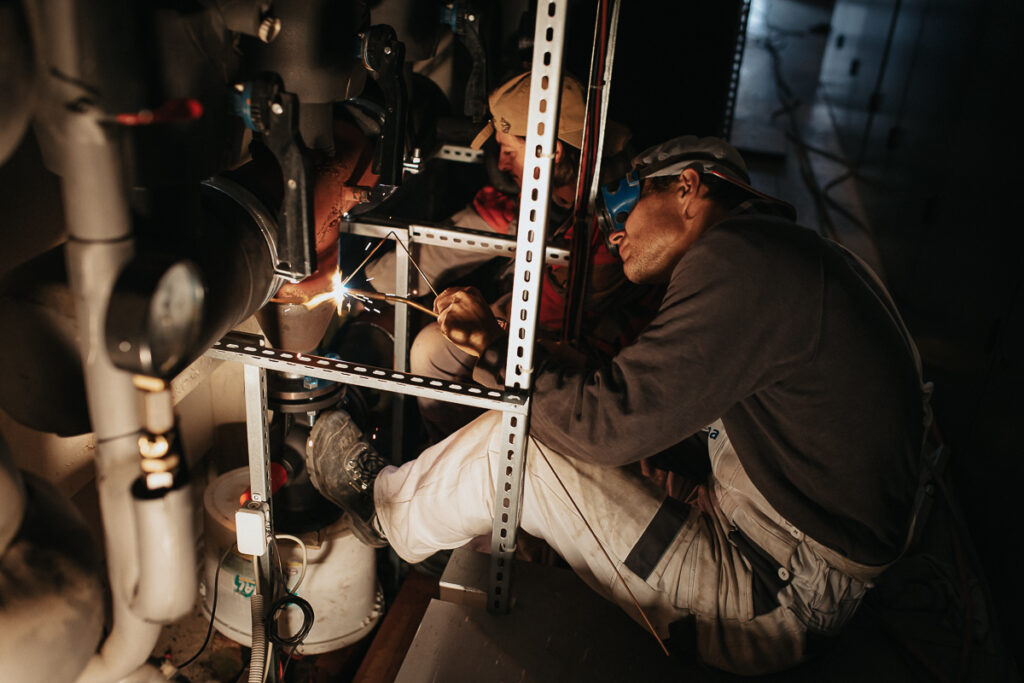

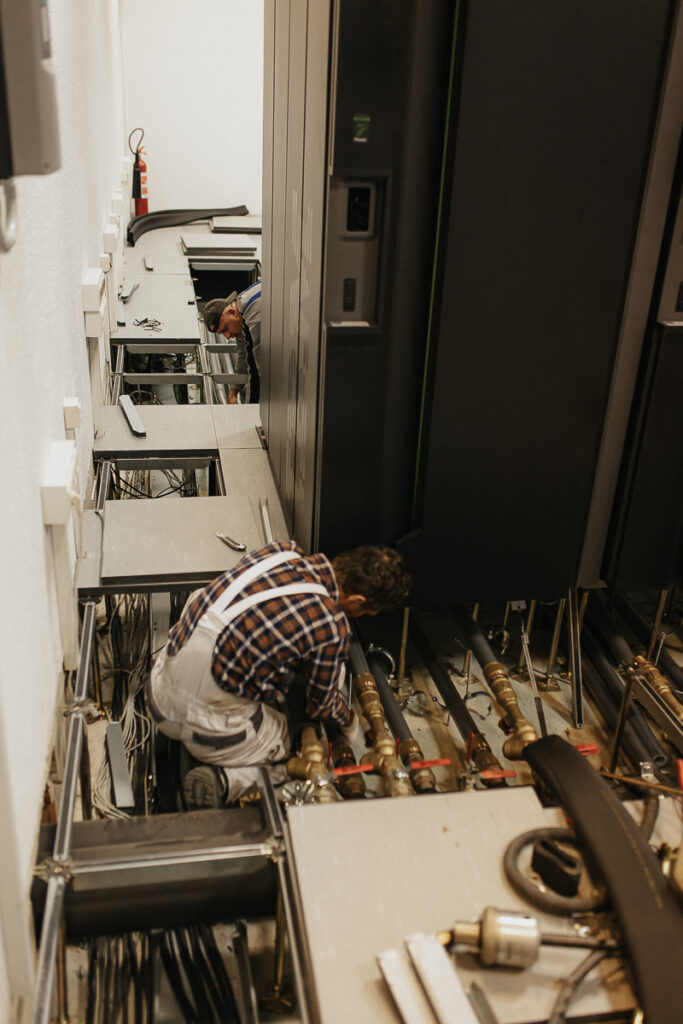
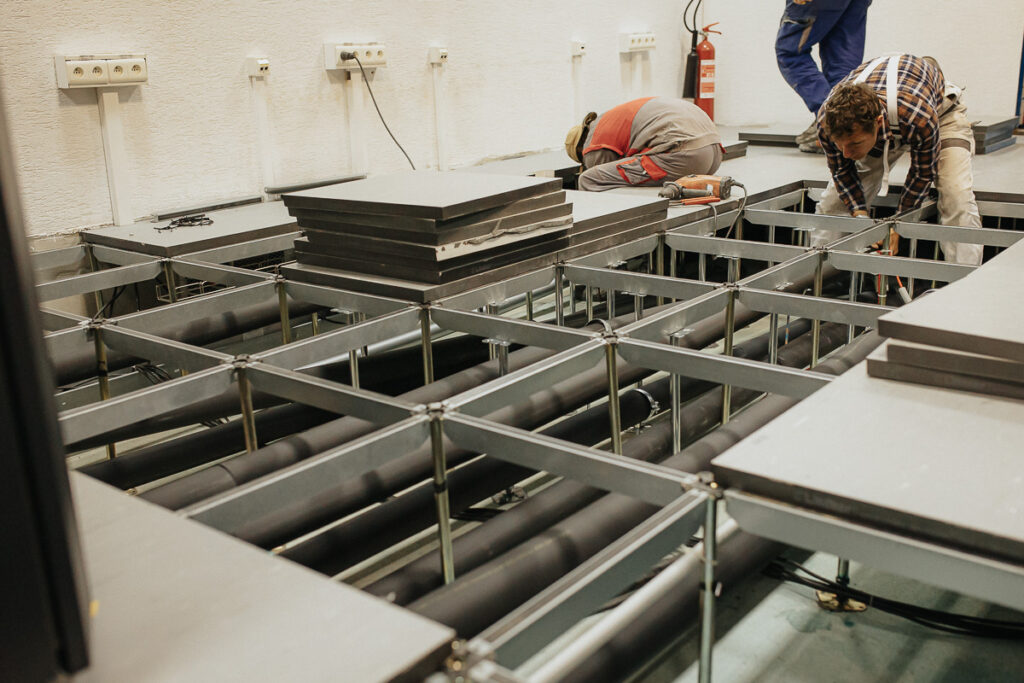
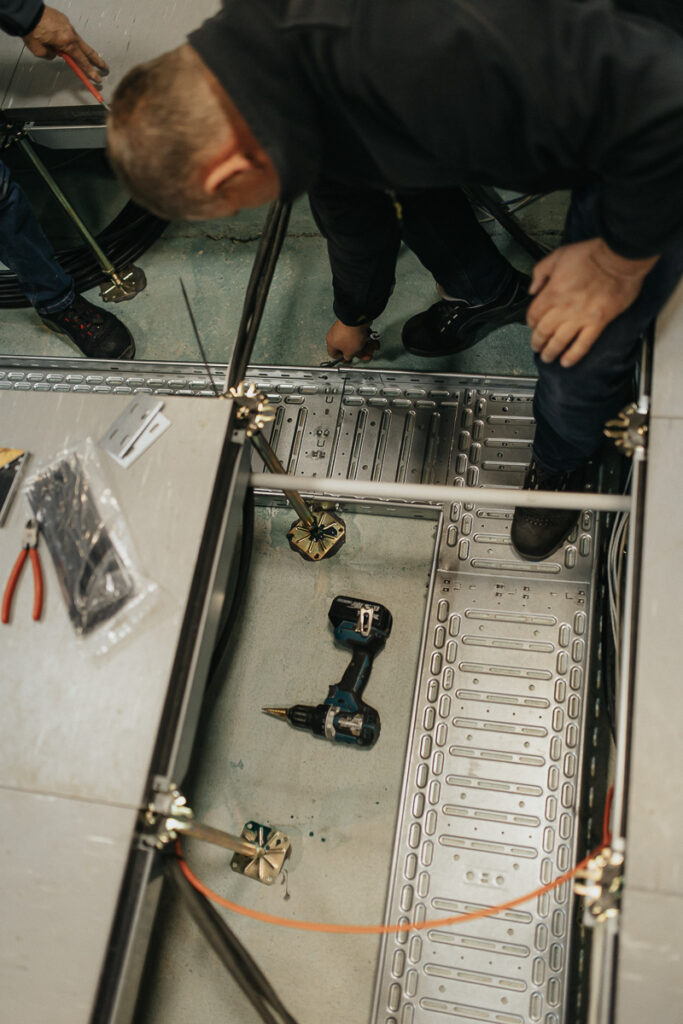
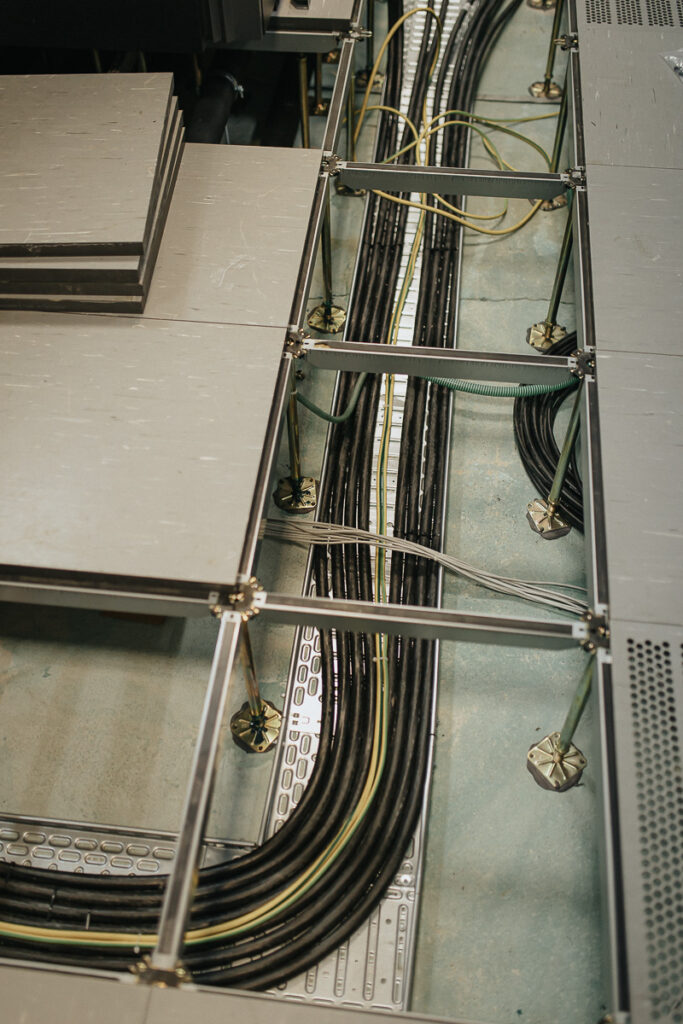
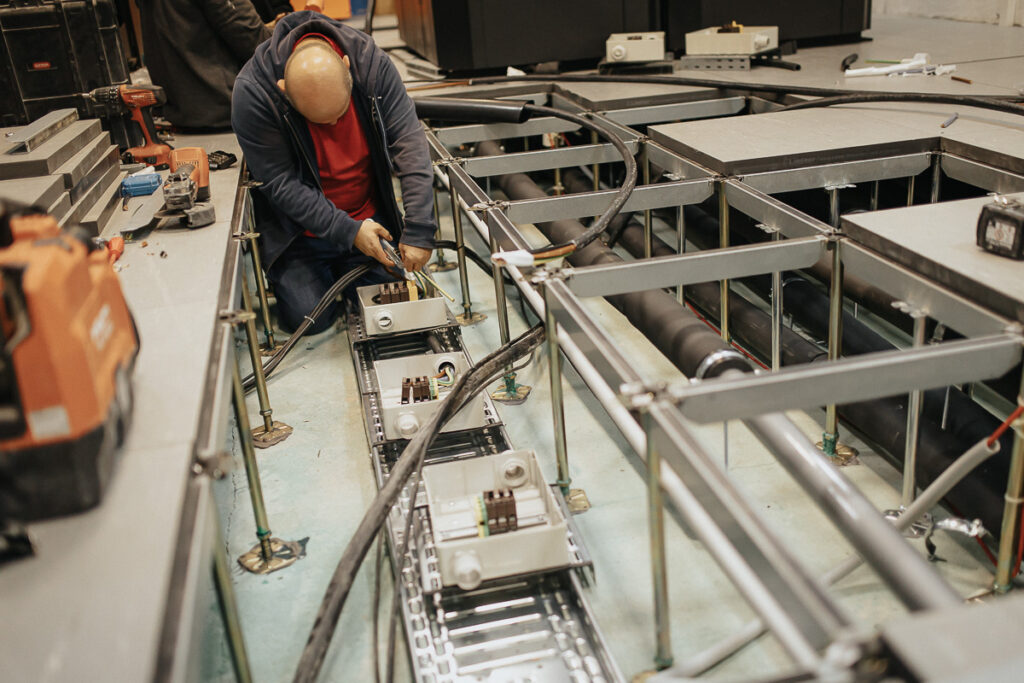
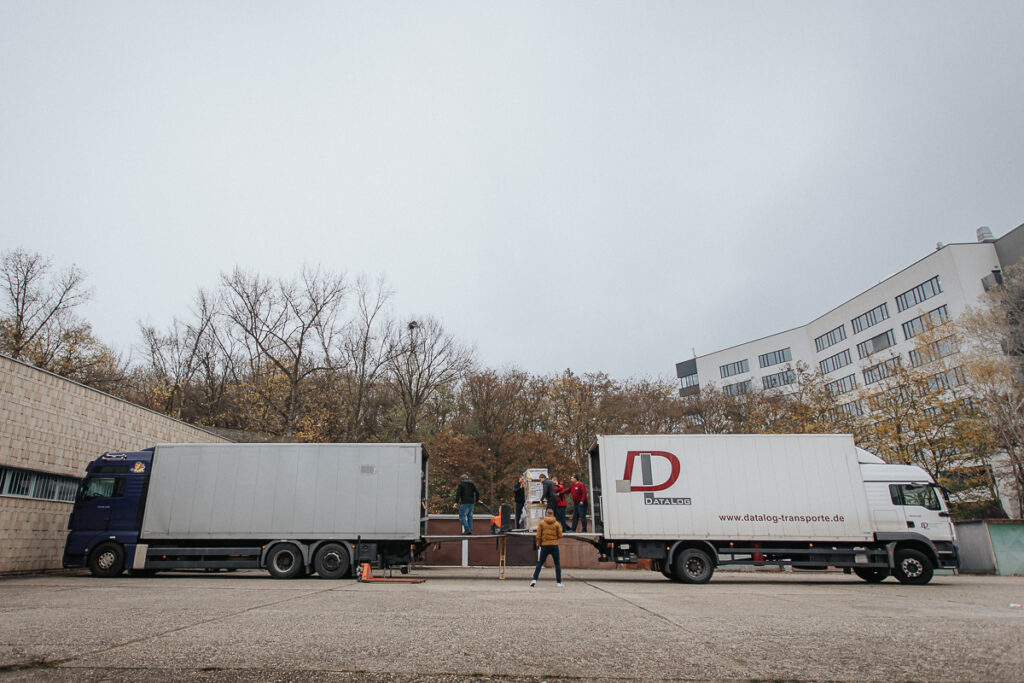


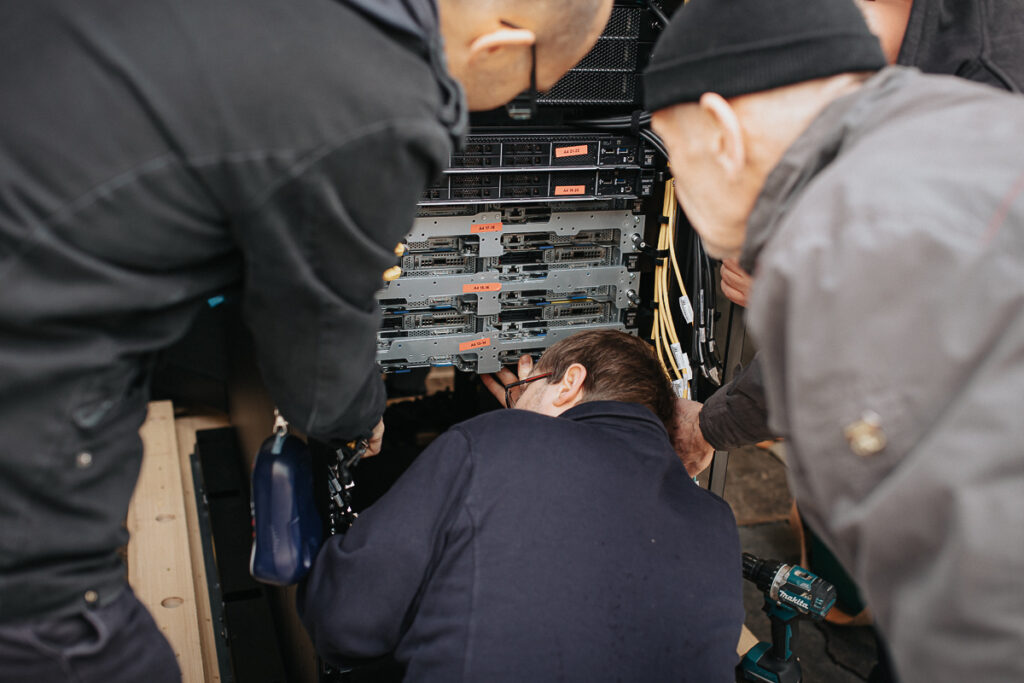


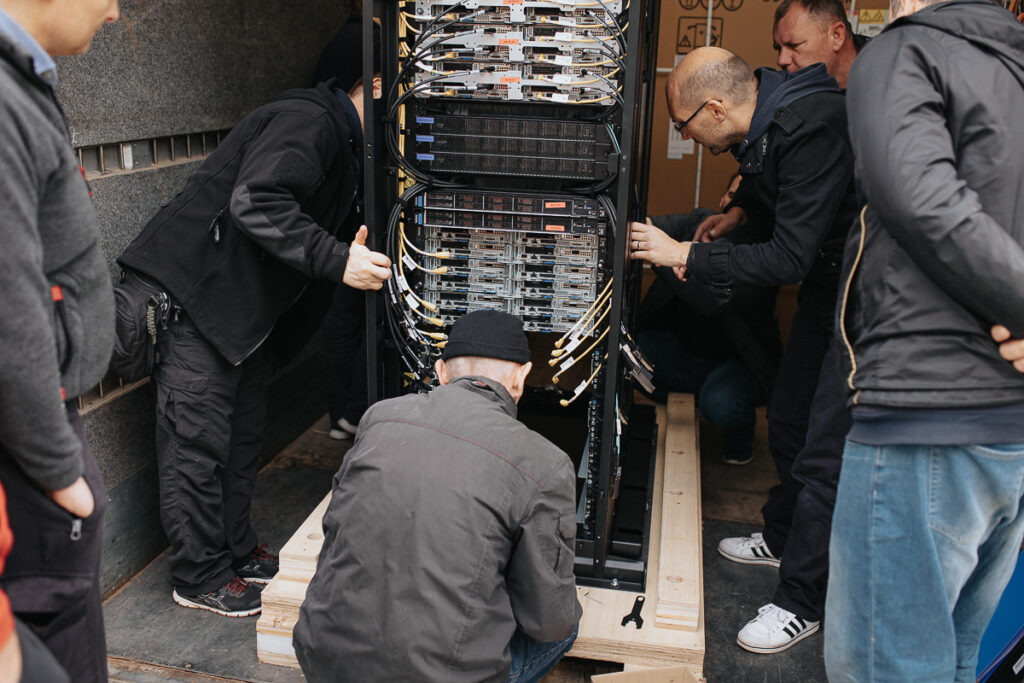

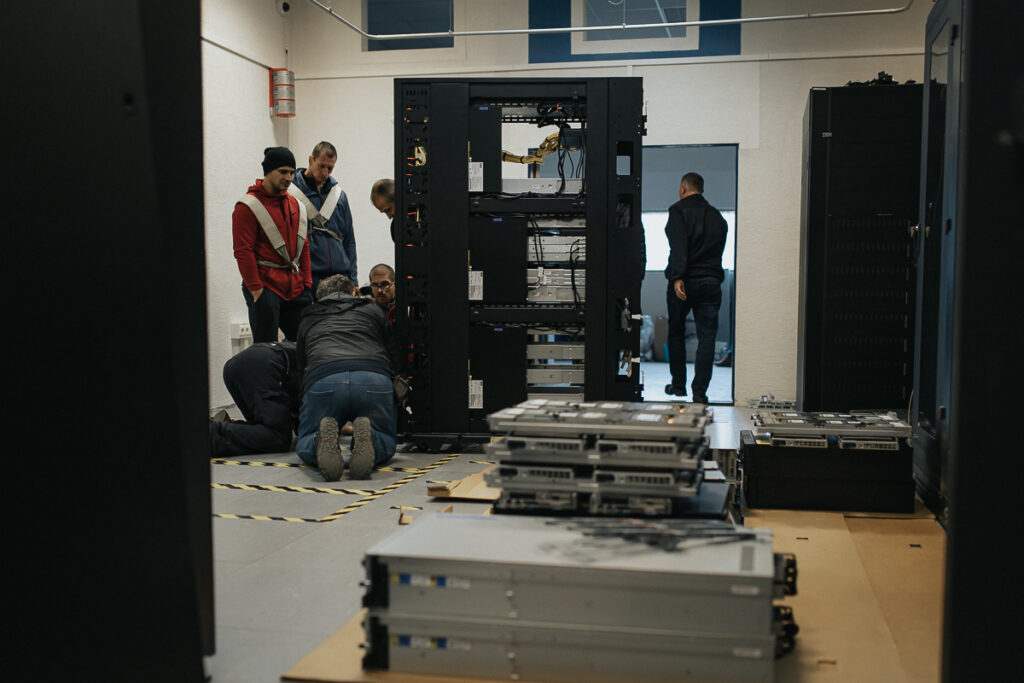
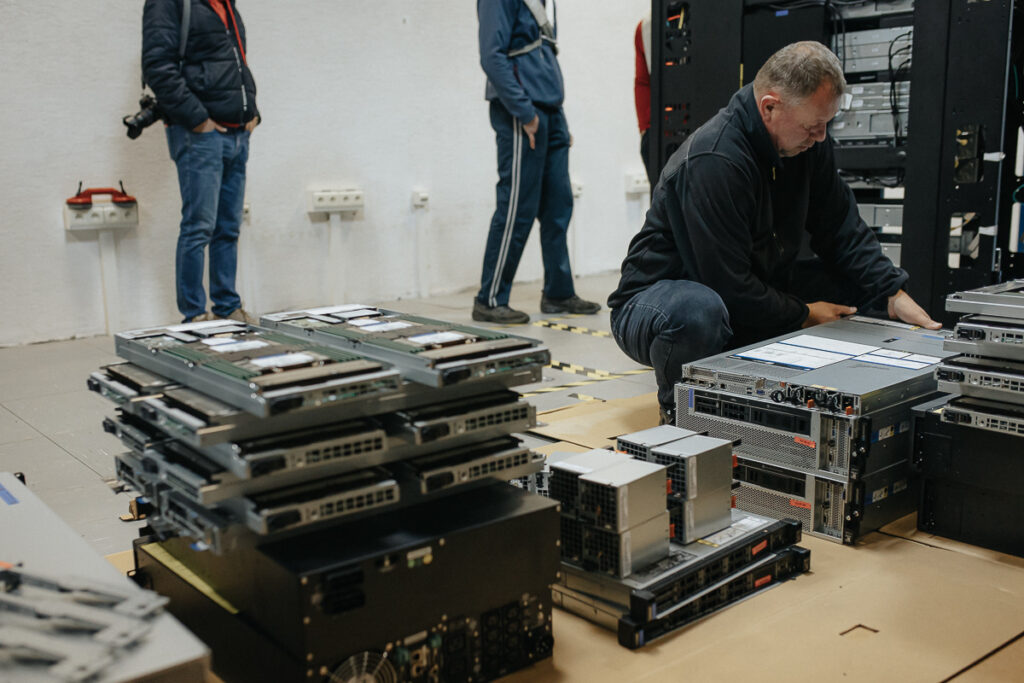
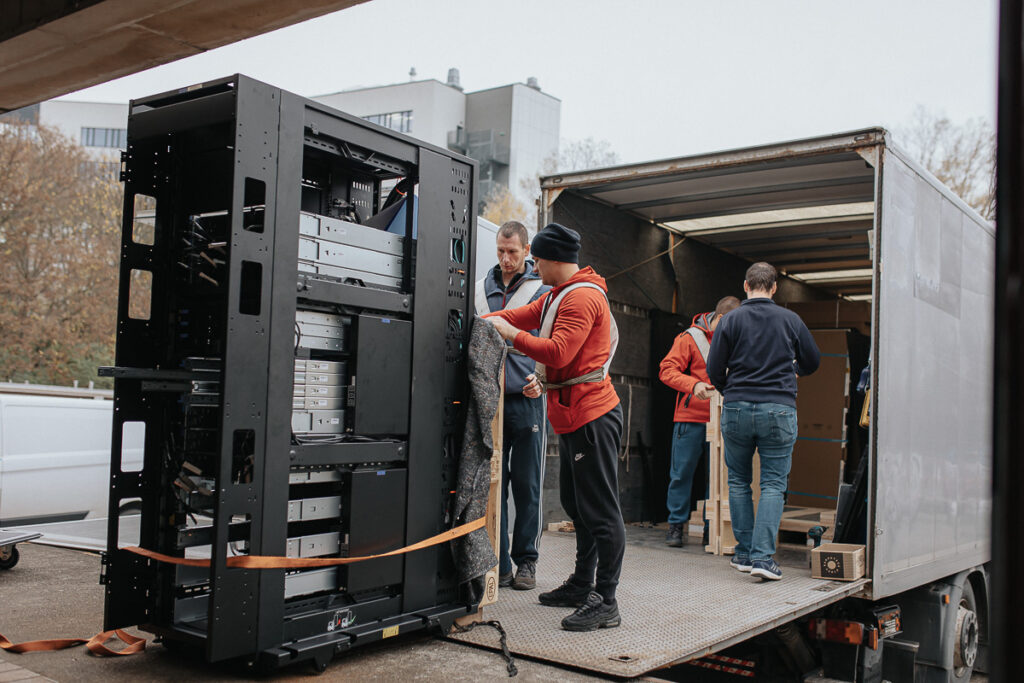
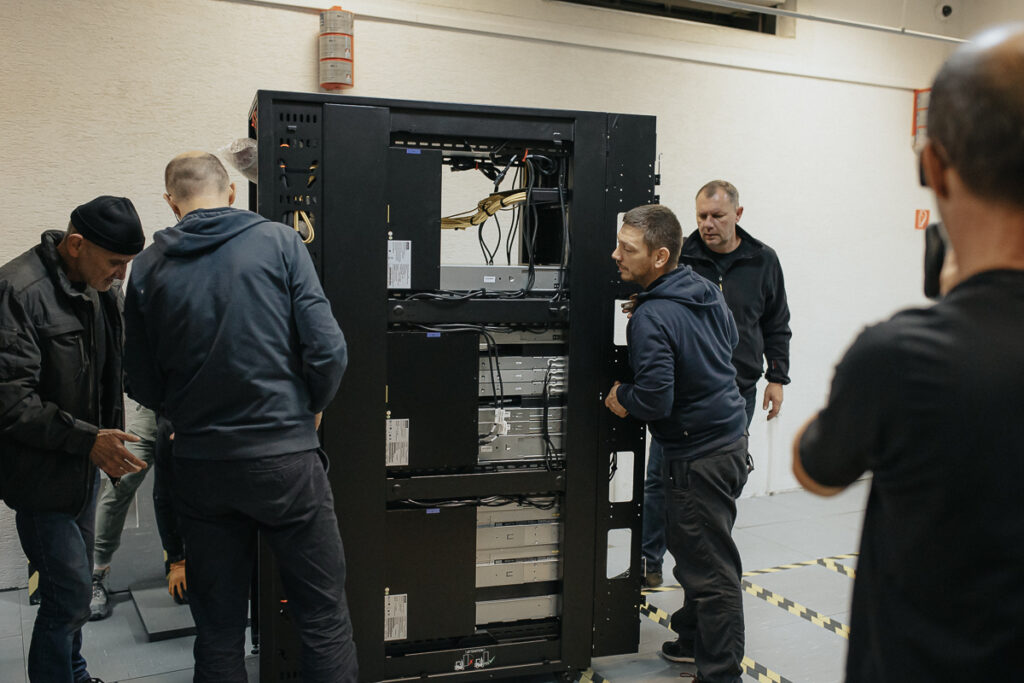
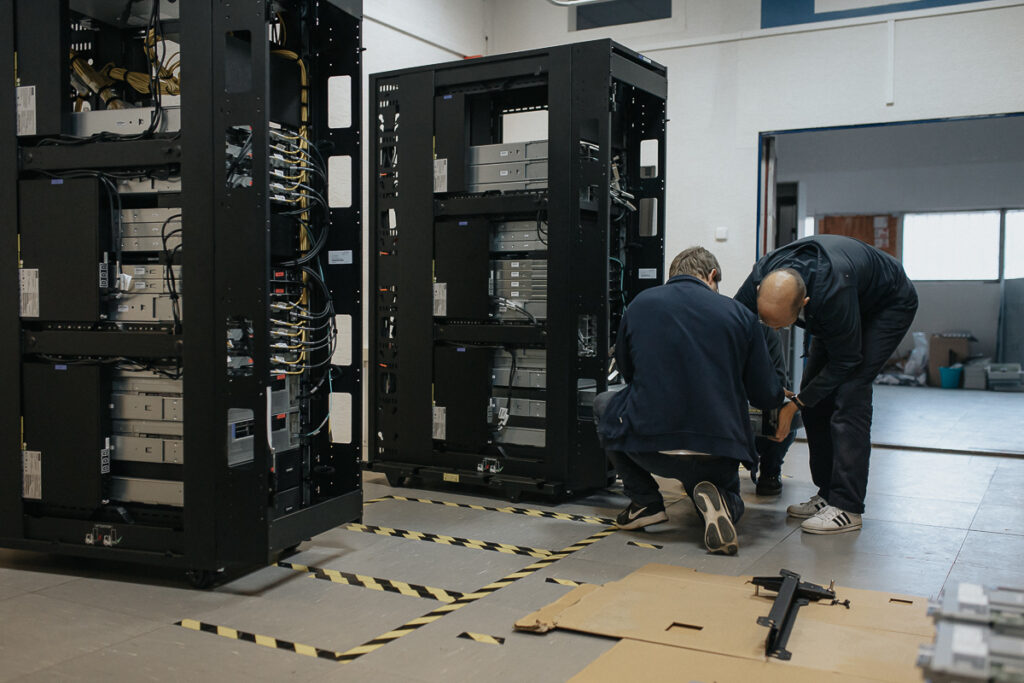
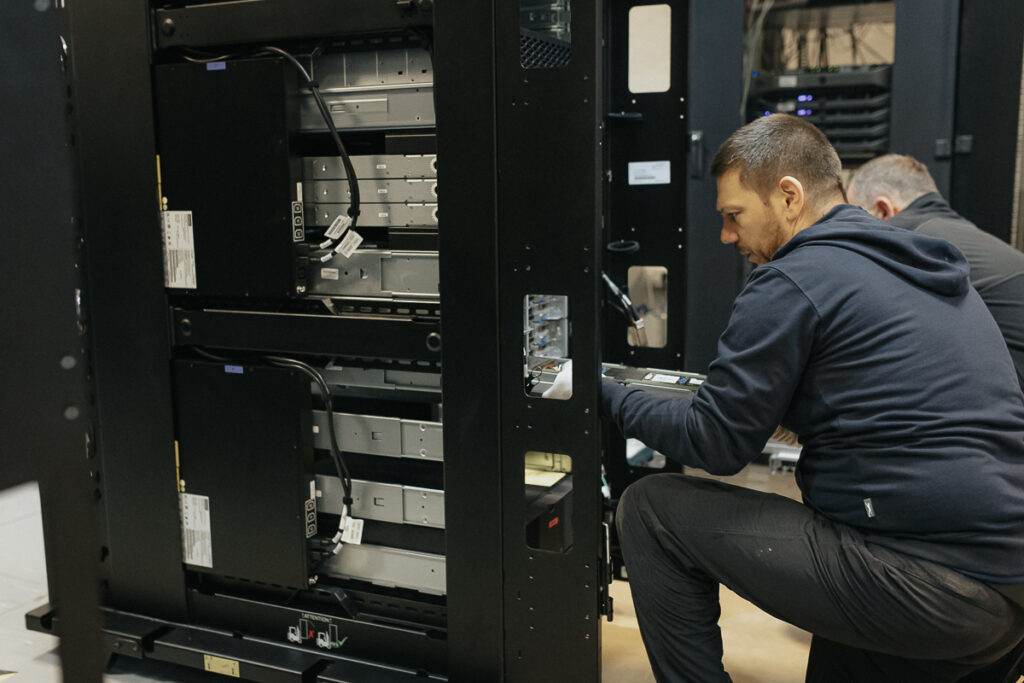
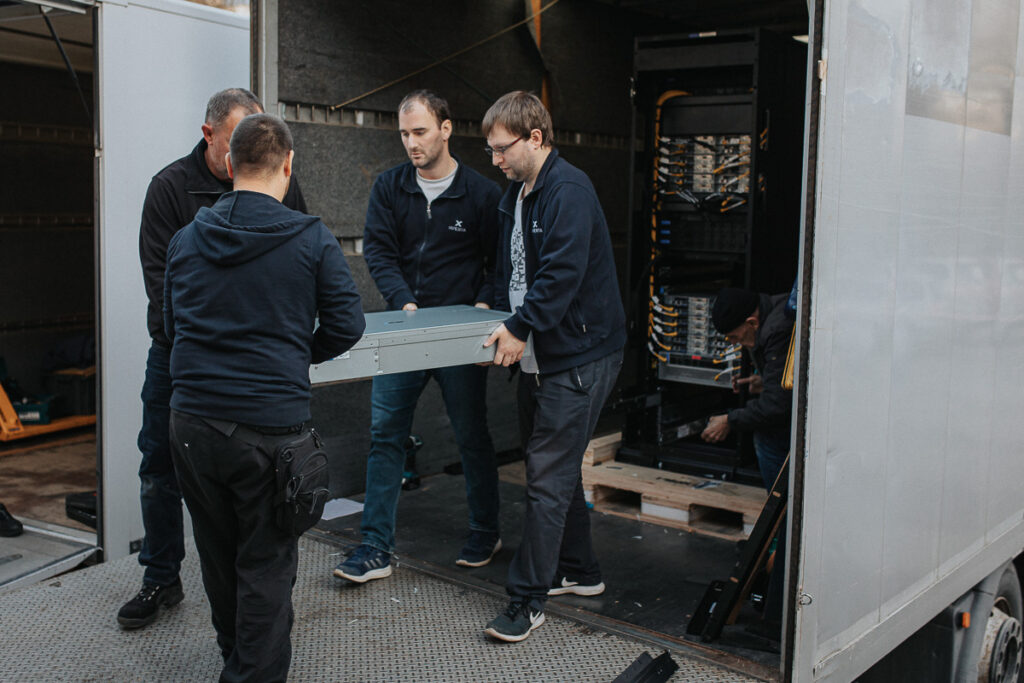
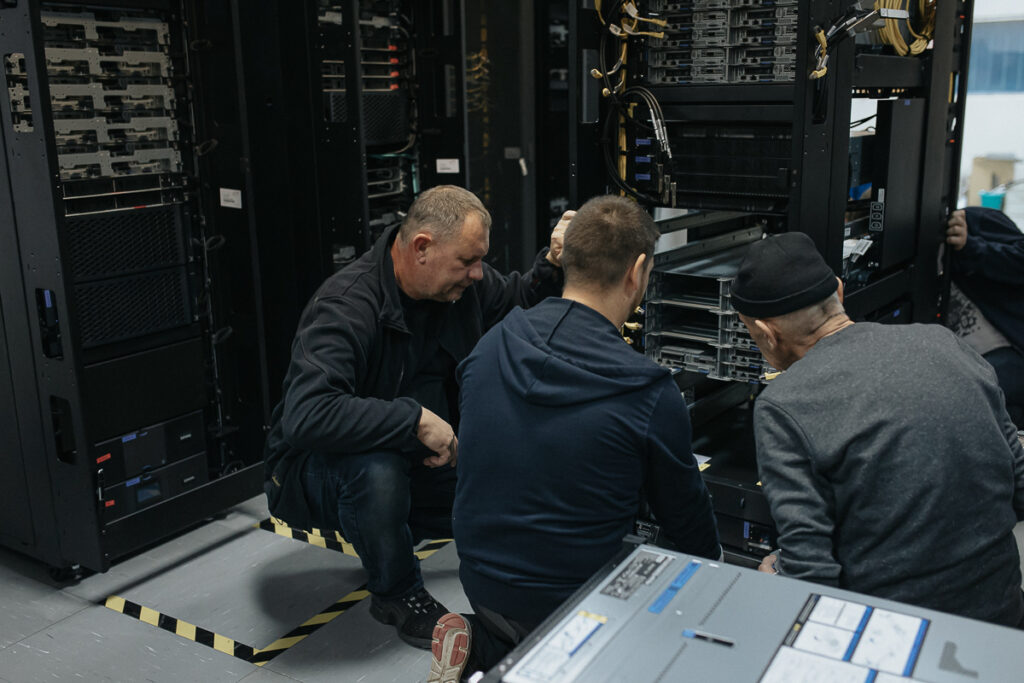
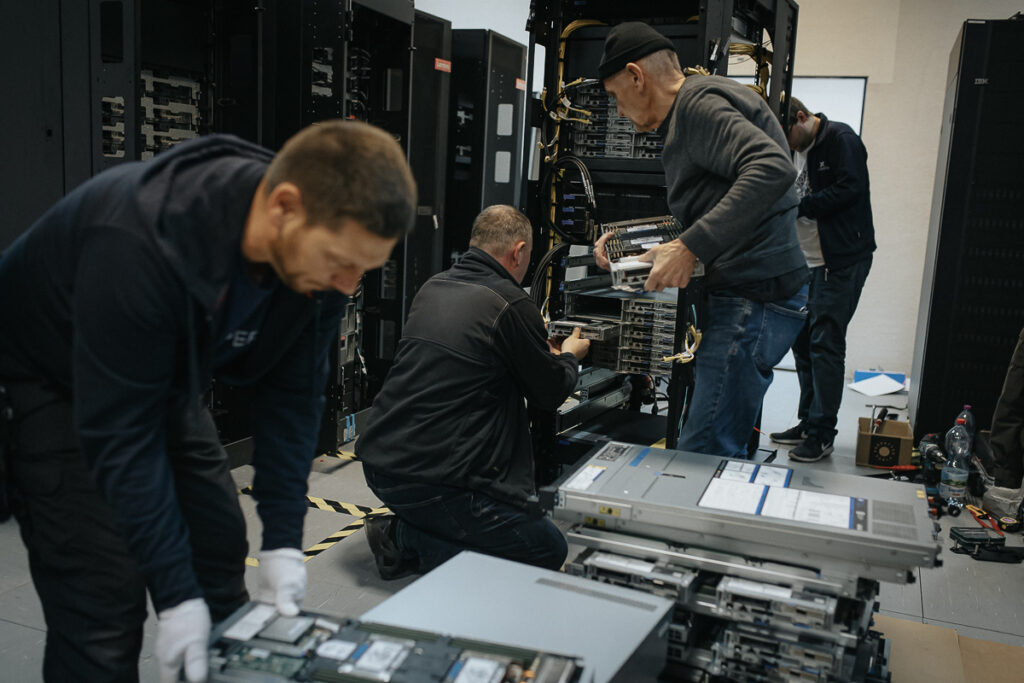

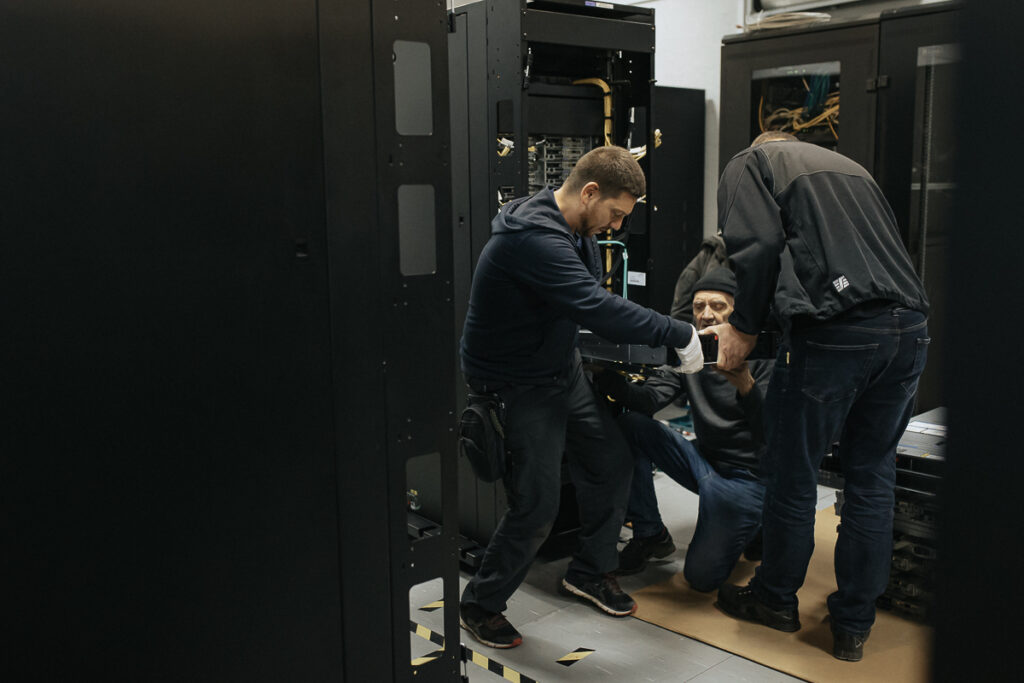
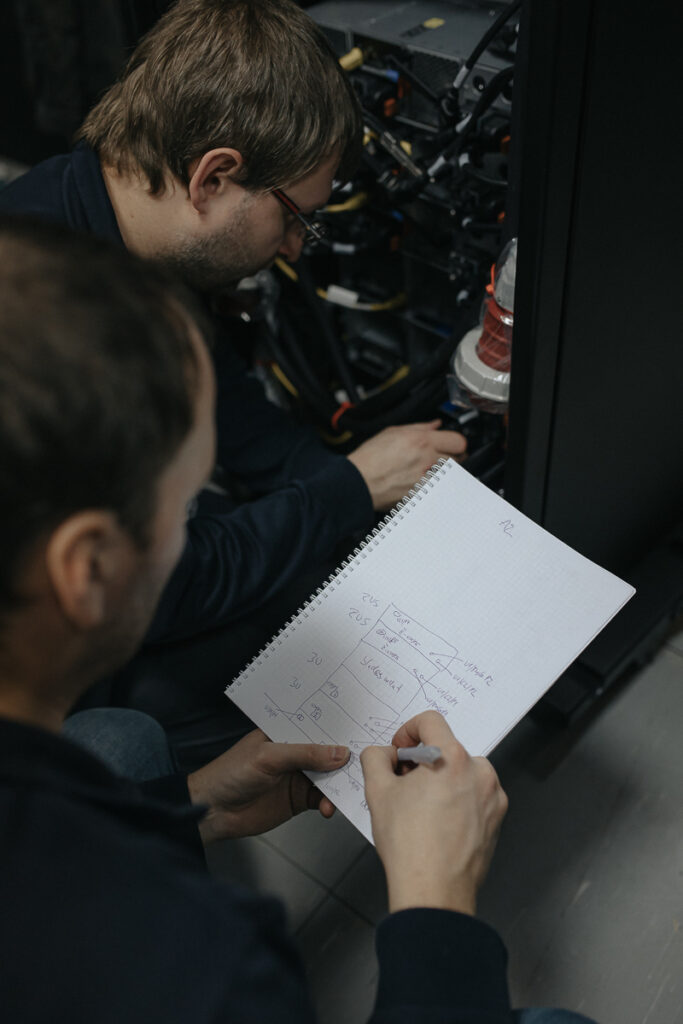


 BeeGFS in Practice — Parallel File Systems for HPC, AI and Data-Intensive Workloads 6 Feb - This webinar introduces BeeGFS, a leading parallel file system designed to support demanding HPC, AI, and data-intensive workloads. Experts from ThinkParQ will explain how parallel file systems work, how BeeGFS is architected, and how it is used in practice across academic, research, and industrial environments.
BeeGFS in Practice — Parallel File Systems for HPC, AI and Data-Intensive Workloads 6 Feb - This webinar introduces BeeGFS, a leading parallel file system designed to support demanding HPC, AI, and data-intensive workloads. Experts from ThinkParQ will explain how parallel file systems work, how BeeGFS is architected, and how it is used in practice across academic, research, and industrial environments. When a production line knows what will happen in 10 minutes 5 Feb - Every disruption on a production line creates stress. Machines stop, people wait, production slows down, and decisions must be made under pressure. In the food industry—especially in the production of filled pasta products, where the process follows a strictly sequential set of technological steps—one unexpected issue at the end of the line can bring the entire production flow to a halt. But what if the production line could warn in advance that a problem will occur in a few minutes? Or help decide, already during a shift, whether it still makes sense to plan packaging later the same day? These were exactly the questions that stood at the beginning of a research collaboration that brought together industrial data, artificial intelligence, and supercomputing power.
When a production line knows what will happen in 10 minutes 5 Feb - Every disruption on a production line creates stress. Machines stop, people wait, production slows down, and decisions must be made under pressure. In the food industry—especially in the production of filled pasta products, where the process follows a strictly sequential set of technological steps—one unexpected issue at the end of the line can bring the entire production flow to a halt. But what if the production line could warn in advance that a problem will occur in a few minutes? Or help decide, already during a shift, whether it still makes sense to plan packaging later the same day? These were exactly the questions that stood at the beginning of a research collaboration that brought together industrial data, artificial intelligence, and supercomputing power. Who Owns AI Inside an Organisation? — Operational Responsibility 5 Feb - This webinar focuses on how organisations can define clear operational responsibility and ownership of AI systems in a proportionate and workable way. Drawing on hands-on experience in data protection, AI governance, and compliance, Petra Fernandes will explore governance approaches that work in practice for both SMEs and larger organisations. The session will highlight internal processes that help organisations stay in control of their AI systems over time, without creating unnecessary administrative burden.
Who Owns AI Inside an Organisation? — Operational Responsibility 5 Feb - This webinar focuses on how organisations can define clear operational responsibility and ownership of AI systems in a proportionate and workable way. Drawing on hands-on experience in data protection, AI governance, and compliance, Petra Fernandes will explore governance approaches that work in practice for both SMEs and larger organisations. The session will highlight internal processes that help organisations stay in control of their AI systems over time, without creating unnecessary administrative burden.


